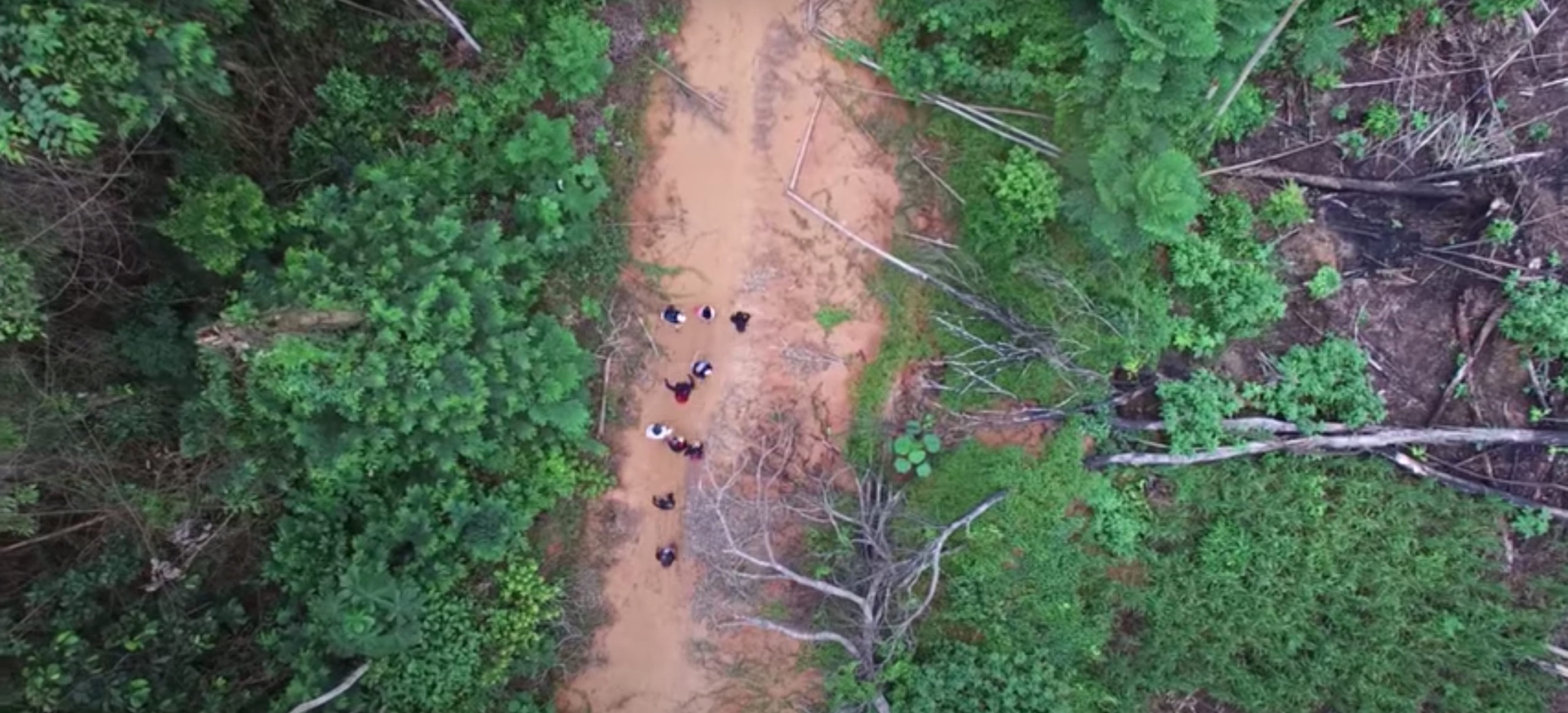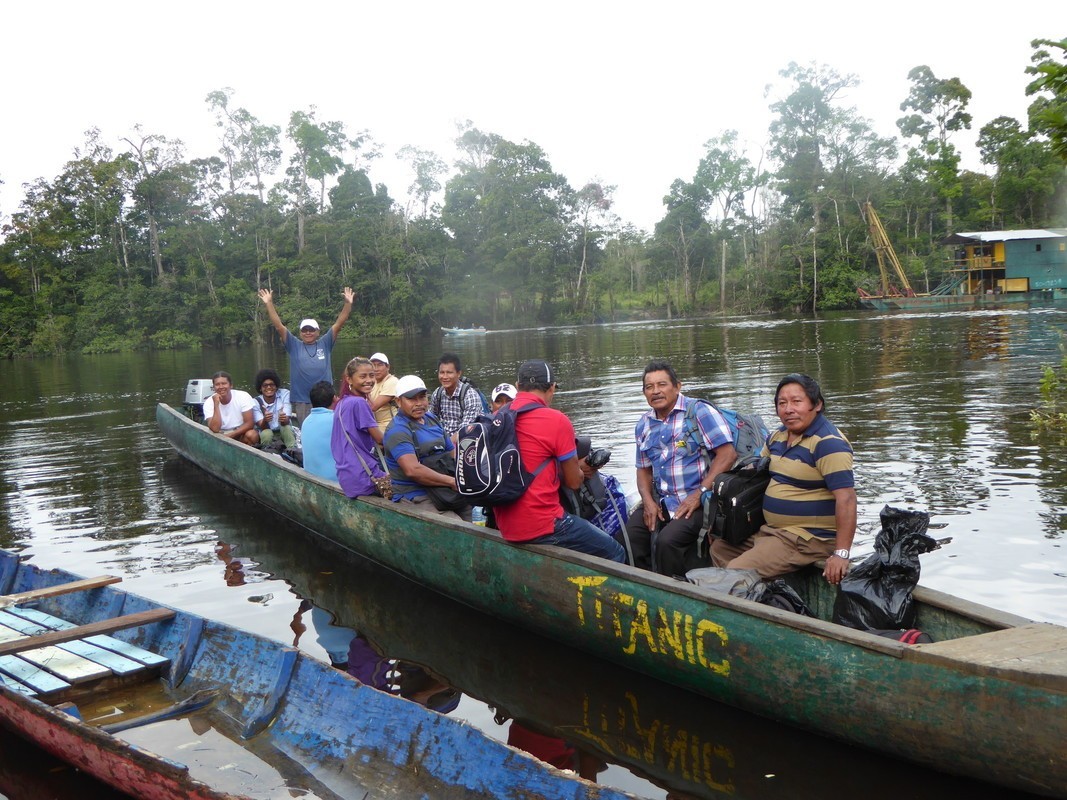Indigenous forest monitors from Nuevo Saposoa and Patria Nueva investigate deforestation on their territories
Nuevo Saposoa and Patria Nueva Obtain Legal Rights to Their Lands
After nine years of struggle and violent conflict with coca growers and illegal loggers, the native Shipibo-Conibo communities of Nuevo Saposoa and Patria Nueva were granted land title expansions that now reach the border of the 1.4 million hectare Sierra del Divisor National Park. The land title expansions have been vehemently opposed by agriculture interests, many of whom are documented to have illegally cultivated coca and burned hundreds of hectares of forest.
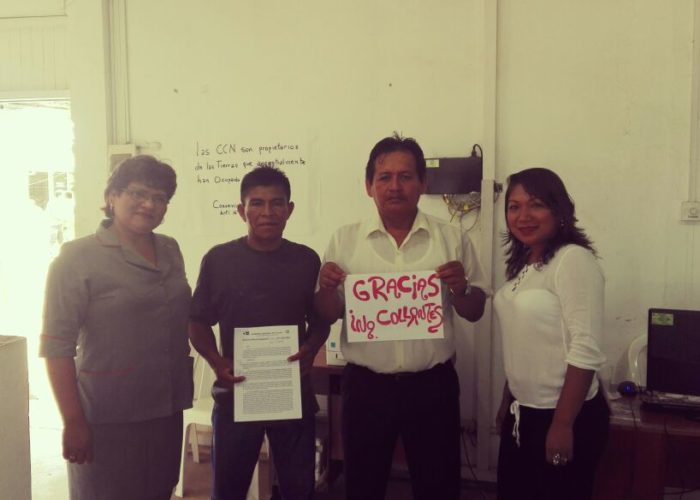
Robert Guerra, the president of Patria Nueva, arrived in the capital of Ucayali on March 22nd to collect the land title expansion. “This means so much to my community,” he said. “The people of Patria Nueva have suffered a lot for this title, and have even died in this struggle.” Eliceo Picón of Patria Nueva was murdered in 2012 in an attempt to confront illegal coca operations in the area. Nobody has been investigated or prosecuted for this crime, adding to the dozens of environmental activists that have been killed with impunity in Peru during the past decade.
The land title expansions for these communities seal up the southern border of the Sierra Del Divisor buffer zone, which community forest monitors have been tirelessly protecting for two years using the Peruvian Ministry of Environment’s state of the art satellite detection system to detect new deforestation. The community monitors who work with Peruvian National Parks Service (SERNANP) use smart phone mapping systems and small drones to locate hidden coca fields and measure rampant illegal deforestation carried out by agriculturalists occupying their territory. Using this monitoring system, with support and training from Rainforest Foundation US, the two Shipibo-Conibo communities and SERNANP were able to document dozens of coca fields and recently burned rainforest.
The occupying agriculturalists formed an association called ‘Eden’ which actively opposed the land title expansions, and began threatening community leaders after their monitoring efforts led to regional government investigations last February. Guerra, testifying before the criminal prosecutor’s office, said that he had been told by one of the leaders of Eden that “your blood will spill before we leave.”
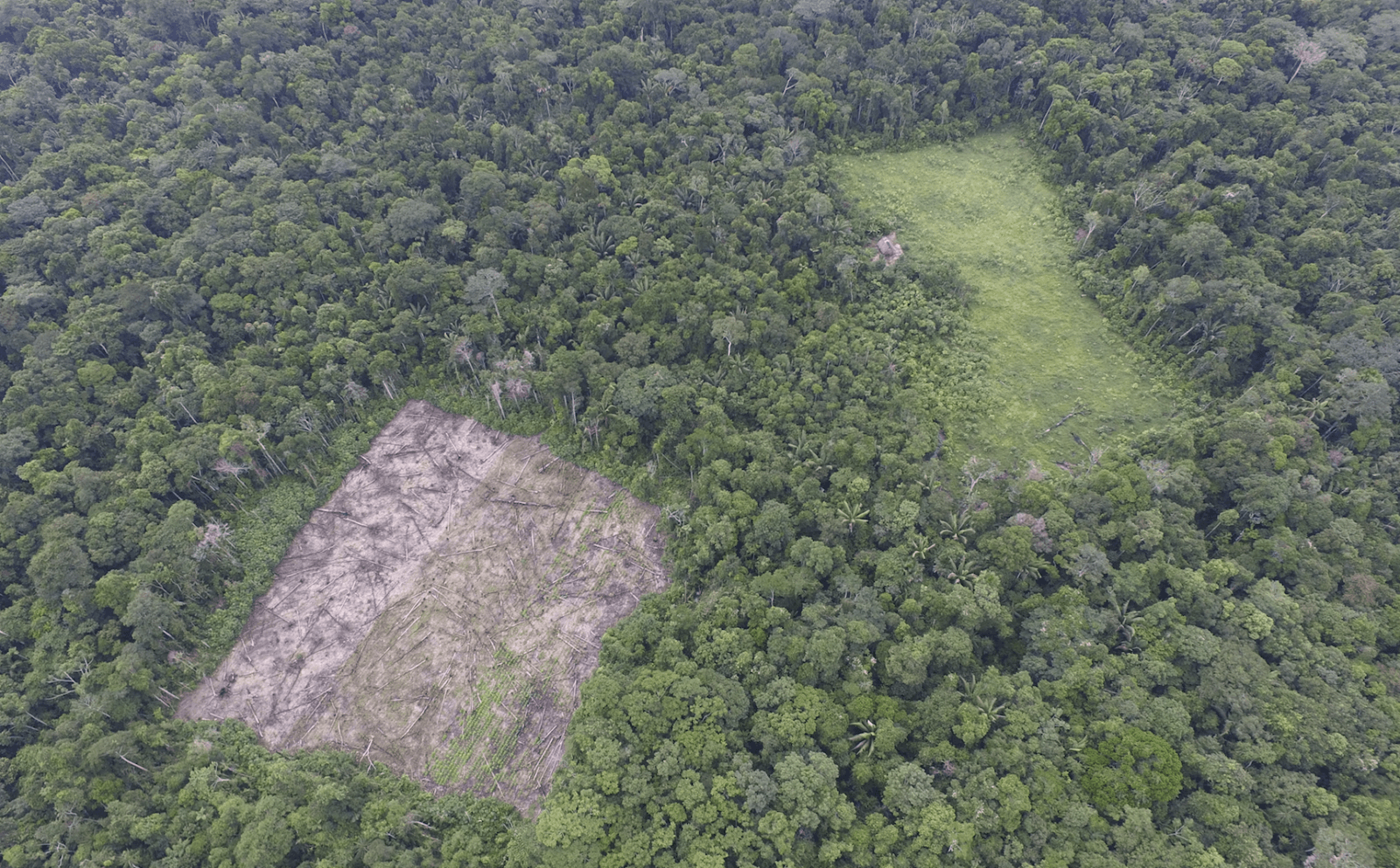
Since being granted the 3,509-hectare and the 6,283-hectare land titling expansions, Nuevo Saposoa and Patria Nueva have been planning to remove the occupiers and reforest the hundreds of hectares that have been destroyed. On March 24th, assemblies from both communities, newly empowered by their land title, declared that they will confront the occupiers and insist that they leave their forest. “The land title gives us legal recognition of our territory, and now we want to reclaim it and turn it back into forest because we are the protectors of the Sierra Divisor National Park,” said Teofilo Magpi, the president of Nuevo Saposoa, adding “We need support from the government because they don’t want to leave and we are afraid that they will be violent.”
Conflicts and deforestation from land invasions and coca production have intensified in Ucayali over the past three years, where vulnerable indigenous communities frequently find themselves openly threatened and without government support. Thousands of migrants from other provinces, often in the service of illegal logging and drug trafficking networks, have been pouring into the region to take advantage of remote forests and lack of law enforcement.
Read More
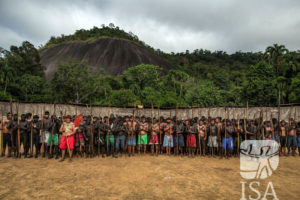
Murder of Two Yanomami by Illegal Miners Heightens Fears of Renewed Cycle of Violence in the Brazilian Amazon
The murders reinforce the need for the Brazilian government to immediately expel the more than 20,000 miners illegally operating on Yanomami land.
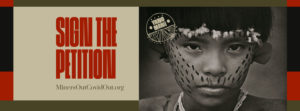
Miners Out, COVID-19 Out: The Yanomami and Ye’Kwana People of the Brazilian Amazon Launch a Global Campaign to Expel Miners From Their Territory
Indigenous leaders demand the urgent removal of 20,000 illegal gold miners from their lands to prevent the spread of COVID-19
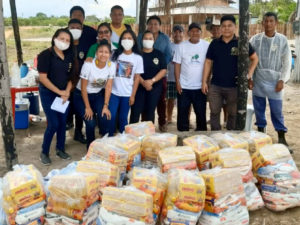
Voices from the Ground: COVID-19 Response in Roraima, Brazil
An interview with the Legal Advisor for the Indigenous Council of Roraima about adressing COVID-19 in his territory.
Support Our Work
Rainforest Foundation US is tackling the major challenges of our day: deforestation, the climate crisis, and human rights violations. Your donation moves us one step closer to creating a more sustainable and just future.

